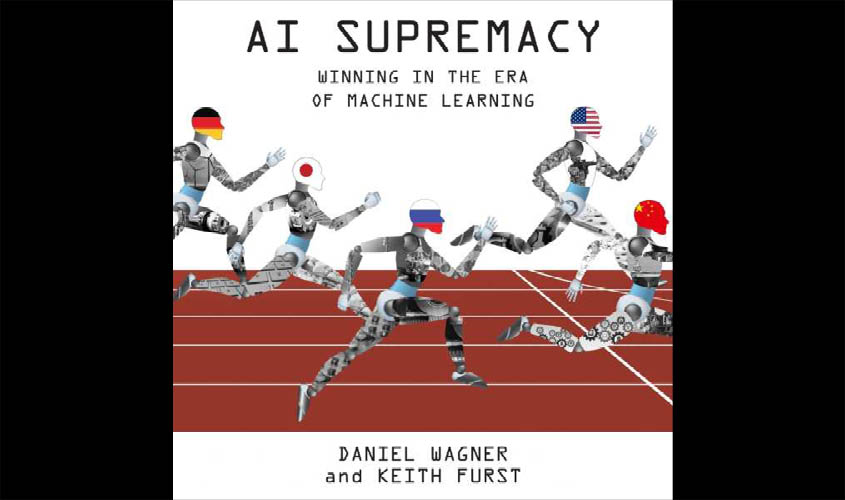The two authors warn of the dangers of autonomous weapons, Orwell-esque surveillance state and of an explosion in cybercrime by both state and non-state actors.
Daniel Wagner and Keith Furst exhaustively explore the inner workings and implications of AI in their new book. Each chapter focuses on the current and future state of AI within a specific industry, country or society in general. Special emphasis is placed on how AI will shape the domestic, diplomatic and military landscapes of the US, EU and China.
The first half of the book tackles AI as it pertains to commerce. There are chapters on globalization, manufacturing, finance, the sciences and communication. Each talks about how AI is disrupting the sector and the jobs attached to said sector, then broaches plausible future scenarios (and problems). Comfortingly, the authors tend to relay a message of AI complementing, not eliminating, workers in the workplace for the foreseeable future. There are examples given of lawyers using software to sift through paperwork and robots handling some of the most tedious and dangerous parts of factory work, under the supervision of humans.
The second half of the book discusses the political implications of AI; this is the more pessimistic half. The two authors warn of the dangers of autonomous weapons, Orwell-esque surveillance state and of an explosion in cybercrime by both state and non-state actors. Wagner and Furst have as a major theme in this section the glaring lack of government oversight of this superhuman technology. At their best, regulators are playing catch-up on issues of safety, privacy and ethics; at their worst, bureaucrats are completely ignoring AI that is revolutionary in the truest sense of the word.
AI Supremacy focuses a lot on the rat race between nations and corporations. To this point, governments have largely let tech titans, such as AliBaba and Amazon, take the lead in R&D. The G-20 nations are now starting to devote funding and attention to developing their own AI and setting international norms. Wagner and Furst write extensively about such efforts being established in the US, EU and China (which has a dedicated chapter). Lesser attention is paid to the scientists in Russia, India, Korea and Japan.
The book doesn’t claim to have all the answers to humanity’s existential queries on AI. Rather, it is more of a primer for how to think and talk about
Russell Whitehouse is Executive Editor at IntPolicyDigest.org as well as a freelance social media manager/producer, 2016 Iowa Caucus volunteer and a policy essayist.

